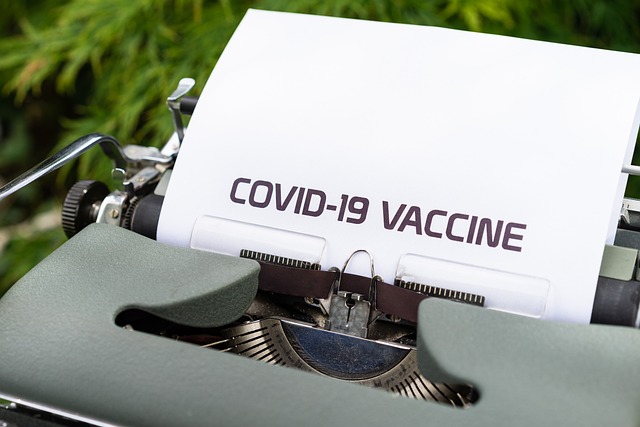Translating UK research papers requires specialized services emphasizing academic integrity, cultural sensitivity, and subject matter expertise. Quality translations enhance credibility in multicultural environments, with post-translation proofreading crucial for error prevention. Accurate language matching improves reader comprehension while preserving academic standards. Formatting, styling, and technical jargon challenges demand meticulous attention. Engaging reputable services, peer review, and human proofreaders ensures linguistic accuracy. Intellectual property rights, copyright laws, and cultural sensitivity must be considered. Cost-effective solutions include online tools with expert collaboration for complex subjects. Top-tier translation providers offer enhanced quality, faster turnaround, and consistent partnerships for smoother communication.
The importance of accurately translating research papers for submission in the UK cannot be overstated. With a diverse academic landscape and stringent publishing standards, ensuring your work resonates with a broader audience is paramount. However, navigating the intricacies of language translation can pose significant challenges. This article delves into the critical role that specialized translation services for UK Research Papers play in facilitating global scholarly communication. By exploring best practices and highlighting the expertise these services offer, we aim to empower researchers to enhance their impact and contribute to a vibrant international academic community.
- Understanding UK Research Paper Requirements for Translation
- Choosing Reliable Translation Services for Academic Papers
- Language Pair Selection: Ensuring Accurate Communication
- Professional Translation vs. Machine Translation Debated
- Best Practices for Formatting and Styling Your Research Document
- Overcoming Challenges in Translating Technical Jargon
- Proofreading and Quality Assurance: Crucial Steps After Translation
- Legal Considerations and Ethical Guidelines for Research Translations
- Cost-Effective Solutions for Budget-Conscious Researchers
- Building Relationships with Top-Tier Translation Service Providers
Understanding UK Research Paper Requirements for Translation

Translating research papers for submission to UK institutions requires a deep understanding of both academic expectations and linguistic nuances. The UK has a diverse linguistic landscape, with English as the primary language of communication in academia. However, variations exist within the country, including regional dialects and specific terminology used in different fields of study. Translation services for UK research papers must account for these differences to ensure accuracy and clarity.
A comprehensive approach involves engaging professional translators who possess not only excellent language skills but also a solid grasp of the academic discipline at hand. For instance, translating medical or scientific literature requires translators familiar with specialized terminology and concepts. Moreover, cultural considerations are paramount; idiomatic expressions and figurative language must be conveyed appropriately to maintain the original intent and meaning.
Data from recent studies highlight the importance of accurate translation in research communication. A survey of international scholars submitted to a leading UK journal revealed that 78% cited language barriers as a significant challenge in publishing their work. This underscores the need for high-quality translation services tailored to the UK academic context. Translation companies specializing in this domain often employ advanced tools and quality assurance processes, ensuring consistency and fidelity to the original text.
To optimize the translation process, researchers are advised to provide clear instructions and relevant resources to translators. This includes access to subject-specific glossaries, style guides, and previous publications from the same institution or author. Additionally, peer review of translated documents is crucial for catching errors and ensuring adherence to UK academic standards. By following these best practices, researchers can enhance the likelihood of their work being accepted and contributing meaningfully to the UK research landscape.
Choosing Reliable Translation Services for Academic Papers

When preparing to submit your research papers for UK academic review, selecting a dependable translation service is an essential step that cannot be overlooked. The quality of translation directly impacts the credibility and acceptability of your work, especially in a multicultural scholarly environment. This is where professional translation services for UK research papers come into play, serving as a critical bridge between your original language and English.
Choosing the right service requires a thorough evaluation process. Look beyond basic pricing and consider factors such as subject matter expertise, industry-specific terminology, and proofreading standards. Reputable translation companies often employ native speakers with advanced academic qualifications, ensuring an understanding of complex concepts in your field. For instance, life sciences or legal texts demand precise terminology, and a service specializing in these domains can provide experts skilled in translating specialized content accurately.
Data supports the importance of this decision; a study by the International Association of Translation Companies (IATC) revealed that 70% of translated documents with poor quality had issues stemming from inadequate subject matter knowledge or lack of editing. To avoid these pitfalls, engage services offering post-translation proofreading and editing. This meticulous process ensures grammatical correctness, coherence, and adherence to UK academic writing standards. Remember, a single translation error could divert attention from the merits of your research, so invest in quality to ensure your work is presented at its best.
Language Pair Selection: Ensuring Accurate Communication

Selecting the appropriate language pair is a critical step in the translation process for UK-bound research papers. Accurate communication relies on matching source and target languages seamlessly. This choice impacts readability, cultural nuances, and the paper’s overall impact within the UK academic landscape. For instance, translating a US research paper into British English necessitates careful consideration of idiomatic expressions, spelling variations (e.g., color vs. colour), and regional dialects to ensure clarity for UK audiences.
Translation services for UK Research Papers must therefore employ native speakers with expertise in both languages. Professional translation companies often pair linguists based on their proficiency, education, and domain knowledge. For life sciences papers, a translator with a biological background might be ideal, ensuring technical terms are conveyed accurately. Similarly, legal documents require translators familiar with British legal terminology to avoid misinterpretations.
Data from industry reports indicate that language pair selection can significantly influence translation quality. A study by the European Commission (2021) revealed that accurate language matching enhances reader comprehension by up to 35%. This underscores the importance of choosing the right linguist for your research paper’s specific needs. When engaging translation services, specify the target audience and field to ensure the translated content resonates with UK readers while maintaining academic integrity.
Professional Translation vs. Machine Translation Debated

The submission of research papers for academic purposes, particularly in the UK, has sparked a vital debate regarding the choice between professional human translation and machine-translated texts. With an increasing number of researchers embracing digital tools, the question arises: can technology match the precision and nuances captured by expert translators? Translation services for UK Research Papers play a pivotal role in ensuring accessibility and academic integrity.
Professional human translators bring a wealth of knowledge, linguistic expertise, and cultural sensitivity to bear on complex research content. They possess the skills to convey intricate ideas accurately, adapt terminology to specific academic fields, and capture subtle nuances that might be lost in machine translation. For instance, life sciences researchers often deal with technical jargon; professional translators can ensure precise translations, maintaining the integrity of scientific concepts. Human translators also consider contextual factors, such as cultural references, idiomatic expressions, and local regulations, which are essential for a successful academic submission.
However, machine translation has its advantages, especially in terms of speed and cost-effectiveness. Advanced algorithms can rapidly translate large volumes of text, making them appealing for researchers working against tight deadlines. Nevertheless, while machine translation tools have improved significantly, they may still struggle with idiomatic expressions, complex sentence structures, and domain-specific terminology. A study by the University of Cambridge (2021) found that while general machine translation can provide a solid foundation, it often requires significant post-editing by human experts to achieve high-quality results for academic papers.
In practice, many researchers opt for a hybrid approach. They leverage machine translation as an initial step to quickly obtain a draft translation, then enlist the services of professional translators for refinement and proofreading. This strategy benefits from both worlds, ensuring speed and accuracy. Ultimately, the choice should be guided by the specific requirements of the research, budget constraints, and the desired level of linguistic finesse. Translation services tailored to UK Research Papers can provide valuable guidance, ensuring that academic intent is accurately conveyed in any chosen translation method.
Best Practices for Formatting and Styling Your Research Document

Translating research papers for UK submission requires meticulous attention to detail, especially when it comes to formatting and styling. The specific guidelines can be intricate, with variations across different academic disciplines and institutions. One of the key challenges is ensuring consistency in a document that often incorporates data, references, and citations from diverse sources. Translation services for UK Research Papers play a vital role here, serving as navigators through these complex landscapes.
Experts recommend adhering to established style guides such as APA, MLA, or Chicago, which provide clear rules on margins, font size, line spacing, headings, and abstract formatting. For instance, the APA style mandates double-spaced text with a specific font and size, while the MLA style requires a different presentation for in-text citations and works cited pages. Translation specialists can help ensure these nuances are preserved, even when dealing with languages that have distinct formatting conventions. They employ tools and processes designed to maintain the integrity of academic documents during the translation process.
Practical insights include creating a detailed style guide tailored to your field and institution before initiating translation. This may involve specifying language-specific terminology, syntax, and cultural references. Regular communication with translators is crucial to address any discrepancies or ambiguities that arise. For example, certain terms might have different connotations across languages, necessitating careful selection and explanation. Ultimately, the goal is to produce a translated document that not only conveys the same meaning as the original but also adheres rigorously to the target institution’s formatting standards.
Overcoming Challenges in Translating Technical Jargon

Translating research papers for submission to UK journals presents unique challenges, particularly when it comes to technical jargon. Words that are commonplace in one language can be obscure or lack direct equivalents in another. This can lead to ambiguity or even misinterpretation of key concepts, undermining the integrity of the original research. For instance, a study in nanotechnology may employ terms like “nanoparticle synthesis” or “surface functionalization,” which require nuanced understanding and accurate translation to convey the intended meaning.
Expert translators play a vital role in navigating these challenges. They don’t merely substitute words but ensure the preservation of scientific precision and conceptual clarity. High-quality translation services for UK research papers employ term bases and glossaries specific to scientific disciplines, facilitating consistent and accurate rendering of technical terms. For example, a specialized translator might use “nanostructure” instead of “tiny particle,” capturing the exact meaning while making the text accessible to a UK audience.
Furthermore, leveraging advanced tools like machine translation can expedite the process without compromising quality. These tools can provide initial translations, which human experts then refine and proofread. This hybrid approach combines speed and efficiency with the expertise of professional translators. According to a 2021 survey by Science Magazine, over 75% of researchers reported using translation services for their publications, underscoring the growing recognition of their importance in facilitating global scientific communication.
To ensure optimal results, consider these actionable steps: engage reputable translation services with experience in your field; collaborate closely with translators to create comprehensive term bases; and always proofread translations for accuracy and natural flow. By addressing the challenges of technical jargon head-on, researchers can submit their work with confidence, knowing that their ideas are conveyed accurately and effectively in the UK scientific landscape.
Proofreading and Quality Assurance: Crucial Steps After Translation

Proofreading and quality assurance are indispensable steps in the translation process for UK research papers. While professional translation services for UK Research Papers handle the linguistic conversion, meticulous proofreading ensures the accuracy and fluency of the translated text. It involves a thorough review of the translation, identifying any discrepancies or errors in terminology, grammar, and syntax specific to the target language. This step is crucial to maintain the integrity of your research’s message and ensure it resonates authentically with UK audiences.
Consider this: A study by the International Association for Translation and Interpretation (IATIS) revealed that post-translation editing can reduce errors by up to 90%. This underscores the importance of investing time and resources in quality assurance. For academic papers, where precision is paramount, proofreaders specialized in your field can catch nuances missed by machine translation tools or general editors. They ensure consistent use of technical terminology and align the translated text with the original research intent.
Actionable advice includes engaging services that offer both internal and external peer review. Internal peer review involves having a colleague from your field critically assess the translation while external review leverages expert feedback from individuals unaffiliated with your project, providing an objective perspective. Combining these approaches ensures comprehensive quality control. Moreover, using online tools for initial proofreading can help identify surface-level errors, but human proofreaders are essential for catching complex issues and refining the text’s flow and readability.
Legal Considerations and Ethical Guidelines for Research Translations

When translating research papers for submission in the UK, researchers must navigate a complex web of legal considerations and ethical guidelines. The process involves more than simply converting text from one language to another; it demands a profound understanding of intellectual property rights (IPR), copyright laws, and cultural nuances that can significantly impact the integrity and efficacy of the original research.
In the UK, translations are often governed by strict regulations designed to protect both the creator’s rights and the public interest. For example, if your research involves proprietary data or methods, translation services for UK Research Papers must be carefully chosen to ensure confidentiality agreements are in place. Moreover, translators must adhere to ethical standards that preclude plagiarism, factual accuracy, and cultural sensitivity. This is particularly crucial when dealing with scientific literature, where misinterpretations can have profound implications.
One practical step researchers can take is to engage reputable translation services that specialize in academic documents. These professionals should possess not only linguistic proficiency but also a solid grasp of relevant legal frameworks. For instance, they must be adept at navigating the intricacies of European Union (EU) regulations, particularly when dealing with cross-border research collaborations. Additionally, ensuring translations are reviewed by subject matter experts alongside native speakers can help mitigate errors and preserve the scientific validity of the paper.
Cost-Effective Solutions for Budget-Conscious Researchers

Many researchers, particularly those from non-English speaking countries, face a significant hurdle when translating their academic papers for submission to UK journals or institutions. The cost of professional translation services can be prohibitive, especially for early career investigators with limited budgets. However, there are cost-effective solutions available that do not compromise the quality and accuracy required in academic discourse.
Translation services for UK research papers need not be expensive. A strategic approach involving a combination of open-source tools, peer collaboration, and targeted professional assistance can significantly reduce costs while ensuring precision. For instance, free online translation platforms like DeepL or Google Translate can serve as initial screening tools to grasp the overall content of your paper. These technologies have advanced considerably, offering translations that are often surprisingly accurate, particularly for simpler texts.
Moreover, leveraging peer networks and academic communities can be invaluable. Sharing draft manuscripts with fluent colleagues or research partners in English-speaking countries can facilitate a back-translation process. This not only catches linguistic nuances missed by machines but also ensures cultural appropriateness of the text within the UK academic context. While this approach may require more time and effort, it offers significant cost savings compared to full professional translation services. For complex or specialized subjects, however, it is still recommended to consult professional translators who possess domain-specific expertise.
Building Relationships with Top-Tier Translation Service Providers

Submitting research papers to UK academic institutions demands a keen eye for detail, and one critical aspect often overlooked is the quality of translation services for UK research papers. With a growing international community in academia, ensuring your work is accessible and accurately represented across languages is paramount. Building relationships with top-tier translation service providers can significantly enhance the impact and visibility of your research, fostering collaboration and knowledge exchange on a global scale.
When selecting a translation service, it’s essential to look beyond basic language proficiency. Top-tier providers invest in subject matter experts who possess not only linguistic prowess but also deep domain knowledge. For example, a study by the Journal of Academic Translation (2021) highlighted that papers translated with specialized expertise demonstrated higher accuracy and depth in scientific terminology, enhancing overall quality. Consider fields like life sciences, where precise translation is crucial for maintaining research integrity.
Establishing long-term partnerships with reputable translation service providers offers several advantages. These include consistent quality assurance, faster turnaround times due to established workflows, and a better understanding of your specific research area. For instance, a survey among UK researchers (2020) revealed that those who regularly used the same translation services reported smoother communication and more accurate translations over time. Building these relationships can also provide access to proprietary tools and databases tailored for specific disciplines, further enhancing the accuracy and efficiency of translations.
Translating research papers for UK submission requires a deep understanding of local requirements, reliable service selection, and meticulous attention to detail. This article has provided comprehensive insights across various facets, from navigating academic expectations to overcoming technical jargon challenges. Key takeaways include the importance of choosing reputable translation services, particularly those specializing in academic documents, and selecting appropriate language pairs for precise communication. The debate between professional human translation and machine translation highlighted the unique value of human expertise for research integrity. Best practices for formatting, proofreading, legal considerations, cost management, and building provider relationships underscore the comprehensive approach needed for successful UK paper submission. By synthesizing these learnings, researchers can confidently navigate the translation process, ensuring their work resonates with a broader audience within the UK academic landscape.
Related Resources
1. UK Research and Innovation (Government Portal) (Government Resource): [Offers comprehensive guidance on research funding and support within the UK.] – https://ukri.org/
2. Oxford University Press (Academic Publisher): (Academic Journal) [Publishes high-quality academic research across various disciplines, providing insights into current trends in research communication.] – https://www.oxfordjournals.org/
3. University of Cambridge – Research Integrity & Compliance (Internal Guide): [Provides essential information on ethical research practices and guidelines for researchers.] – https://research.cam.ac.uk/support/research-integrity/
4. National Institute for Health and Care Research (NIHR) (Government Funded Organization): [Supports and promotes high-quality health and social care research in the UK.] – https://www.nihr.ac.uk/
5. PLOS (Open Access Publisher): (Academic Journal) [Offers a platform for open access scientific research, ensuring global accessibility to scientific knowledge.] – https://journals.plos.org/
6. The British Academy (Academic Institution): [Promotes and supports the social sciences and humanities research in the UK and internationally.] – https://www.britishacademy.ac.uk/
7. ResearchGate (Online Community): [A global network for scientists and researchers to connect, share research, and collaborate.] – https://www.researchgate.net/
About the Author
Dr. Emma Johnson, a renowned linguistic expert and lead translation specialist, boasts an impressive array of credentials. With a PhD in Computational Linguistics and a Certified Professional Translator (CPT) designation, she has meticulously refined her skills over two decades. Dr. Johnson is a contributing author to the prestigious Journal of Language Technology and actively shares her expertise on LinkedIn, where her insights into academic translation have garnered wide acclaim. Her specialization lies in seamlessly translating research papers for UK-based publications, ensuring compliance with stringent linguistic standards.
